Maintaining the thermal comfort of animals naturally

The planet has witnessed the 8 warmest years on record with 2022 being the hottest year for Europe, resulting in crushing consequences on the comfort and performance of animals. Officials are predicting that the summer of 2023 will be even hotter. How to mitigate the effect of these high temperatures on livestock?
Periods of high heat, particularly during the summer, alter the comfort of livestock, which are subjected to heat stress. The risk level is a function of the Temperature and Humidity Index (THI). Heat stress affects the physiology of the animals: their body temperature, their respiratory frequency as well as their water consumption increase strongly. These phenomena lead to a decrease in the animals’ feed intake and performance with heavy economic consequences in animal production.
How to mitigate heat stress effects?
Heat stress must be managed by a holistic approach encompassing farm management practices and nutritional strategies.
Nutritional solutions are key to limit the adverse effects of hot periods, but they need to have key-characteristics. Firstly, as animals do not regulate their body temperature in the same way, the solutions need to be species and productive stage-specific. For example in ruminants, fermentation in the rumen creates heat, which contributes to the metabolic heat production. In growing animals, the larger the animal, the larger will be the impact of heat stress due to a lower surface area-to-mass ratio. Animals with high anabolic rates (at the peak of their productivity) have greater susceptibility to heat stress. Moreover, the genetic selection for productivity has increased the susceptibility to heat stress. Secondly, effective heat stress solutions need to address all the problems linked to heat stress such as decreased feed intake, disturbed electrolyte balance associated with blood alkalosis and rumen acidosis, inflammation and oxidative stress leading to leaky gut, and impaired anabolic processes. To do cover it all, synergetic solutions offering multi-layered protection are required.
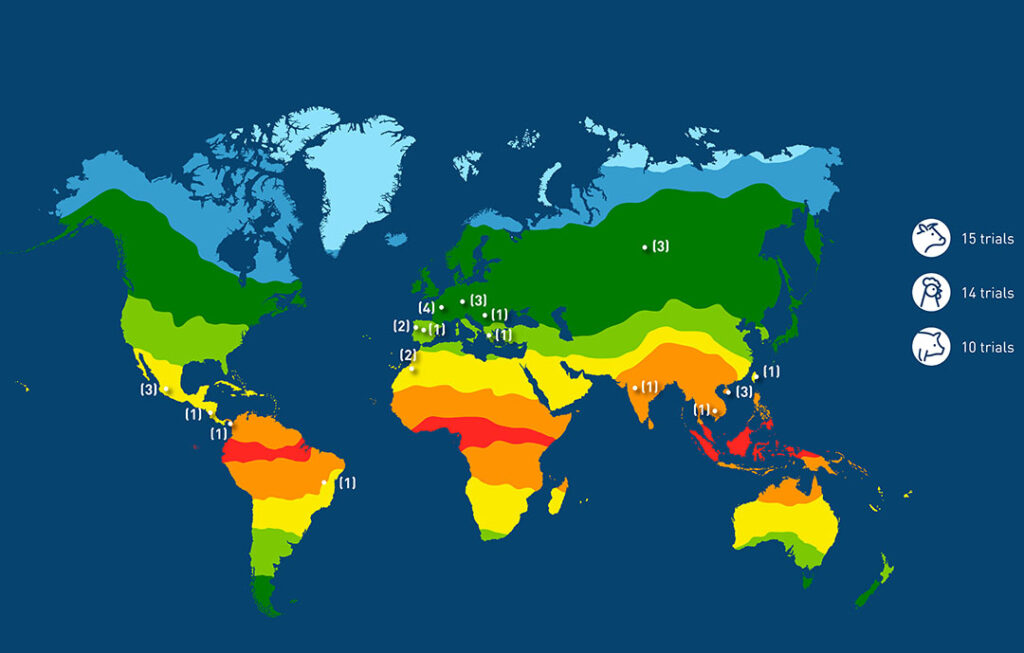
Dedicated solutions for optimal results
For ruminants, CCPA Group has developed Thermo Plus, a phyto-solution which acts on the consequences of heat stress. It strengthens the natural systems involved in heat dissipation, offsets electrolyte balance and stimulates ingestion. The product has been successfully tested in 15 trials around the world. This solution improves animals’ comfort as evidenced by increasing rumination in dairy cows (+35 points) in a Mexican trial. Decreasing heat stress also contributes to improve reproductive performance, in the same trial the cow’s conception rate was improved from 50% to 73%. Thanks to its preserving effect, better zootechnical performance were observed. It also increased average milk production by 1.84 kg/day across 10 trials.
In swine production, Thermo Control phyto-solution contributes to overcoming the harmful effects of high ambient temperature and humidity. Its plant-based ingredients promote the dissipation of excess internal heat, limit blood alkalosis and increase feed intake. Consistently in our trials, Thermo Control supplementation improved animal comfort as demonstrated by less inactive pigs (-13 points) and decreased respiratory rates (-22 points). Animal performance is improved as a result, primarily due to consistently higher feed intake in sows and fattening pigs (+7.8% and +5.0% on average across trials, respectively). Consequently, in maternity, litter weight was higher by 6.5% on average, up to +12.5% in a trial with heat stress of high intensity-THI (Taïwan trial with a daily temperature range of 30-35°C). The feed conversion ratio was reduced by 3.6 points in the fattening period. For direct use at farm on top feeding and at animal scale (e.g. for sows at maternity), an adapted version, Delta Thermo Pig, is also available.
To address heat stress challenge in poultry production, CCPA Group proposes a complementary approach with Feedstim Poultry incorporated in the feed during constant heat stress and Delta Thermo Poultry, a water-soluble powder combining natural antioxidants and electrolytes during acute heat peaks or in anticipation of major heatwaves. In Feedstim Poultry, the synergetic association of Curcuma longa with patented Scutellaria baïcalensis supports digestive organ function which is impaired under heat stress. In our experimental trials an improvement of animal comfort has been evidenced by decreased mortality rates. Accordingly, poultry performance was improved with lower feed conversion ratio by -0.07 points over 8 trials in broilers and -0.06 points in layers over 3 trials along with an increase of the laying rate by 2.6 points. The intervention product, Delta Thermo Poultry has been shown to decrease mortality by 5% and improve broiler comfort by decreasing the occurrence of thermoregulatory behaviours such as open beaks (-14 points) and wing spreading (-14 points, CCPA Trial in CCPA Research Station).
Assess the risks with decision support tools
To be efficient against heat stress, anticipation and preparation are key. The industry needs to know when to react and at which level and plan accordingly. Hot periods are cyclic but short and variable. To tackle this challenge, CCPA Group has developed Thermo Plan dashboard which gives the THI risk levels by area based on the local meteorological data of the past years. A second challenge is to increase the awareness of farmers to the heatwave’s impact on their performances and help them to quickly evaluate the level of risk. Thanks to CCPA Group mobile app, Thermo Tool, breeders can see at a glance the heat stress risk over the next 5 days. So, they can prepare and set up preventive measures in the management of their farm and to adapt animal nutrition, if necessary. In addition, the app evaluates the performance losses related to these hot periods and the economic consequences that result from them.
To mitigate the adverse impacts of hot periods, CCPA Group has developed a complete package with species-dependent solutions and resourceful digital solutions. This complete approach allows to observe animals’ thermal comfort and preserve their performance.
 Beheer
Beheer

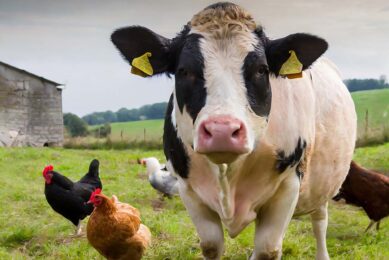
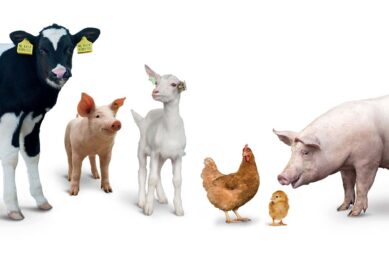
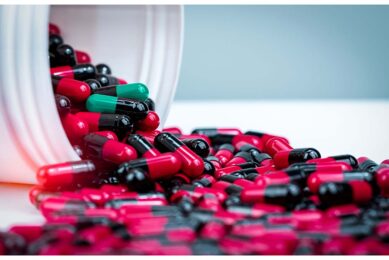
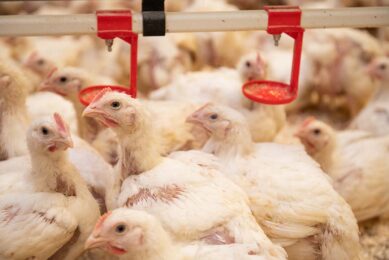
 WP Admin
WP Admin  Bewerk bericht
Bewerk bericht